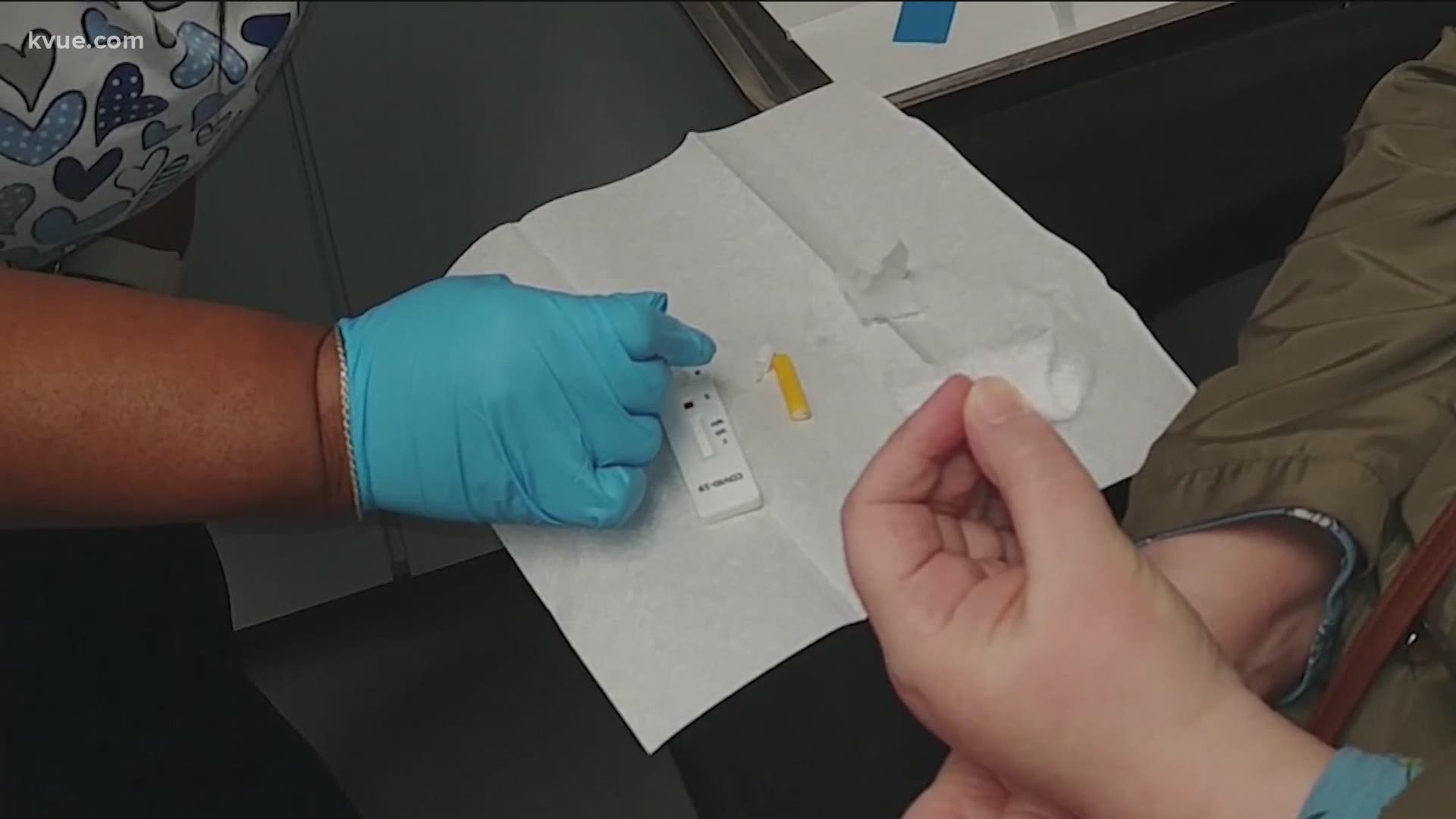AUSTIN, Texas — This week the U.S. Food and Drug Administration announced the authorization for an at-home collection kit that allows people who believe they could have COVID-19 to send their samples to laboratories for diagnostic testing.
Austin-based Everlywell's COVID-19 Test Home Collection Kit is now authorized to be used by individuals at home who have been screened using an online questionnaire that is then reviewed by a health care provider. The FDA also approved two diagnostic tests, performed at specific labs, for use with the samples collected by the kit.
Additional tests for use with these kits could be approved in the future.
“The authorization of a COVID-19 at-home collection kit that can be used with multiple tests at multiple labs not only provides increased patient access to tests, but also protects others from potential exposure,” said Jeffrey Shuren, M.D., J.D., director of the FDA’s Center for Devices and Radiological Health. “Today’s action is also another great example of public-private partnerships in which data from a privately funded study was used by industry to support an EUA request, saving precious time as we continue our fight against this pandemic.”
RELATED:
The kits allow people to self-collect using a nasal swab, which is then deposited into a tube filled with saline to be transported back to a CLIA-certified lab that is authorized to test these kits. These include Fulgent Therapeutics and Assurance Scientific Laboratories. Their results are later returned through Everlywell's independent physician network and an online portal.
This comes after two recent emergency use authorizations (EUA) for diagnostic tests that also use at-home collection: one that also uses a nasal swab sample that is transported in saline and another that permits testing of a saliva sample collected by the patient at home.
The Everlywell test is not an antibody test. The company uses polymerase chain reaction (PCR) testing.
It's worth noting that the Texas Medical Association and Austin Public Health do not recommend antibody tests, even if they are FDA approved, because they are not 100% reliable.
PEOPLE ARE ALSO READING:

